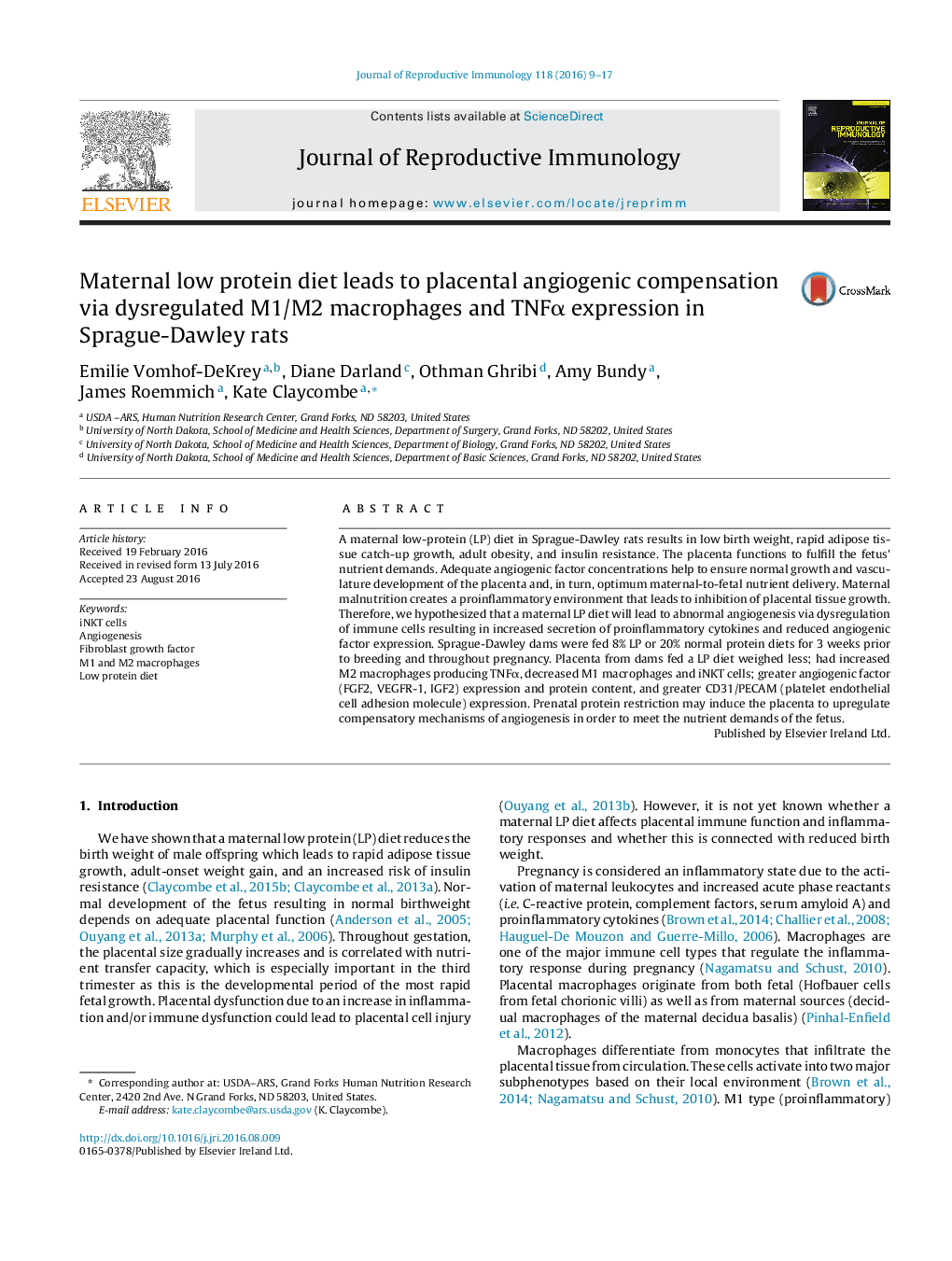| Article ID | Journal | Published Year | Pages | File Type |
|---|---|---|---|---|
| 3965647 | Journal of Reproductive Immunology | 2016 | 9 Pages |
•Offspring body weight is decreased by a low protein (LP) maternal diet.•Maternal LP diet influences an increase in some placental angiogenic factors.•Maternal LP diet increases placental proinflammatory M2 TNFα+.•A maternal LP diet alters placental development, function, and immune environment.
A maternal low-protein (LP) diet in Sprague-Dawley rats results in low birth weight, rapid adipose tissue catch-up growth, adult obesity, and insulin resistance. The placenta functions to fulfill the fetus’ nutrient demands. Adequate angiogenic factor concentrations help to ensure normal growth and vasculature development of the placenta and, in turn, optimum maternal-to-fetal nutrient delivery. Maternal malnutrition creates a proinflammatory environment that leads to inhibition of placental tissue growth. Therefore, we hypothesized that a maternal LP diet will lead to abnormal angiogenesis via dysregulation of immune cells resulting in increased secretion of proinflammatory cytokines and reduced angiogenic factor expression. Sprague-Dawley dams were fed 8% LP or 20% normal protein diets for 3 weeks prior to breeding and throughout pregnancy. Placenta from dams fed a LP diet weighed less; had increased M2 macrophages producing TNFα, decreased M1 macrophages and iNKT cells; greater angiogenic factor (FGF2, VEGFR-1, IGF2) expression and protein content, and greater CD31/PECAM (platelet endothelial cell adhesion molecule) expression. Prenatal protein restriction may induce the placenta to upregulate compensatory mechanisms of angiogenesis in order to meet the nutrient demands of the fetus.
Graphical abstractFigure optionsDownload full-size imageDownload high-quality image (100 K)Download as PowerPoint slide
